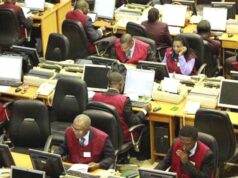By ADEWALE KUPOLUYI
Controversies continue to trail plans by the Central Bank of Nigeria (CBN) to redesign, produce and circulate new local legal tender. While some stakeholders believe that the decision was a good one, others feel that the move is unnecessary. Just a few days ago, the Nigerian Minister of Finance, Budget and National Planning, Zainab Ahmed alleged that she was not aware of the CBN’s intention. It is on record that the Naira has not been redesigned in the last 20 years, which probably prompted the apex bank to seek and obtain approval of President Muhammadu Buhari to redesign, produce, and circulate new series of N100, N200, N500, and N1,000 banknotes with effect from December 15, 2022.
Those in support said it would help reduce or put a stop to money laundering, hawking and ‘spraying’ at social events, vote-buying, ransom taking and counterfeiting. The CBN governor, Godwin Emefiele had disclosed that “85% of the currency in circulation are outside the vaults of our commercial banks. Data indicates that N2.73 trillion out of the N3.23 trillion currency in circulation was outside the vaults of commercial banks across the country. In recent years, the CBN has recorded significantly higher rates of counterfeiting, especially the high denominations of N500 and N1000 bank notes”. Emefiele added that the redesigning of the Naira would make ransom payments to terrorists and kidnappers more difficult and that the re-designed currency would help deepen the country’s drive to entrench a cashless economy.
The effect of the currency change is that while the old and new notes circulate together until January 31, 2023, the old notes would cease to be legal tender in the country. It should be stated that replacing old currency notes with new ones is a routine exercise that central banks do without much ado, as old notes are gradually replaced with new ones once they return to the banking system. However, proposing a sudden withdrawal of notes for replacement with redesigned notes is seen as having no economic benefit to the country, but would rather come at huge costs. Redesigning the N100 to N1,000 notes, which should not be a priority now, is taken to be a waste of the nation’s time and resources. The N100, the equivalent to US 20 cents, to N500 and equivalent to USD1, are due for replacement with Naira coins of the same denominations to make room for the introduction of higher denominations of Naira notes.
Opponents are also of the opinion that fixing the deadline two to three weeks ahead of Christmas/New Year festivities, which is two months ahead of the general election, is disruptive and insensitive. The Organised Private Sector (OPS) such as the Lagos Chamber of Commerce and Industry (LCCI) argues that it is already enduring a lot of disruptions ranging from local foreign exchange supply, exchange rate, and interest rate shocks. These aggravate food and energy shocks, and they deserve to be spared the needless disruption from the ‘wild goose chase’ proposed by CBN. The fact that ‘over 80 percent of currency in circulation (N2.73 trillion out of N3.23 trillion) exists outside the commercial banks’ is not sufficient evidence of ‘persistent hoarding of banknotes by members of the public’, argued the Director-General of LCCI, Dr. Chinyere Almona. It reasoned that the only reason that currencies are printed is for them to be put in circulation and not to be kept in banks.
READ ALSO: Buhari: CBN has my backing in replacing naira notes
Hence, the reason for calling it currency in circulation, which is usually broken down into two components; currency outside banks and vault cash, meaning the cash that banks keep aside to honour requests for cash by their customers. Hence, only a negligible faction of currency in circulation should ideally stay in banks’ vaults because it only stays in the vaults when in transit for the ultimate destination of every printed currency is outside the banks so that it may circulate from hand-to-hand for years and the fact that ‘currency in circulation has more than doubled since 2015; rising from N1.46 trillion in December 2015 to N3.23 trillion in September 2022’ does not necessarily present a problem because the Gross Domestic Product (GDP) also increased from N95 trillion to N210 trillion over the reference period because the value of currencies in circulation had been a stable fraction of GDP, roughly 1.34 percent, over the period.
LCCI drew attention to the fact that information published in the annual report of the Currency Operations Department of CBN reveals that the number of pieces of notes in circulation had risen sharply from 3.2 billion pieces in 2006, following the phased introduction of N100 to N1,000 notes from December 1999, to December 2005, to more than 10 billion pieces of all notes as of 2020, even though more than five billion pieces of these were N100 to N1,000 notes. In other words, as the CBN is proposing to redesign and replace five billion pieces of the highest four denomination notes, it should have considered coining N100 to N500 notes and replacing them with about a billion pieces of larger denomination Naira notes to cut the monumental waste implicit in continuing to print pieces of low-value notes with a short lifespan.
The import of this is that the Naira would likely experience more exchange pressures that may further weaken it against major currencies if more people decide to buy foreign currencies as alternative store of value, saying the CBN needs to be more innovative to establish appropriate policies and take actions that will drive down the inflation rate and strengthen the value of our Naira. In conclusion, one can say that the currency change may be the right step in the right direction, but done at the wrong time. In the days ahead, it is hoped that more robust engagements would be made by all stakeholders in the best interest of the nation such that value of the Naira would be strengthened, crime and criminality is reduced, purchasing power of the people is boosted, inflation addressed, and the weak image of our currency is made strong again.
*Dr. Kupoluyi writes from the Federal University of Agriculture, Abeokuta (FUNAAB), Ogun State, @AdewaleKupoluyi
- Tinubu to IMF: We’ll provide safety nets for Nigerians to cushion reform’s effects - November 21, 2024
- Bauchi suspends 6 civil servants for stealing govt properties - November 15, 2024
- Zacch Adedeji: And the revenue keeps increasing… - November 15, 2024










